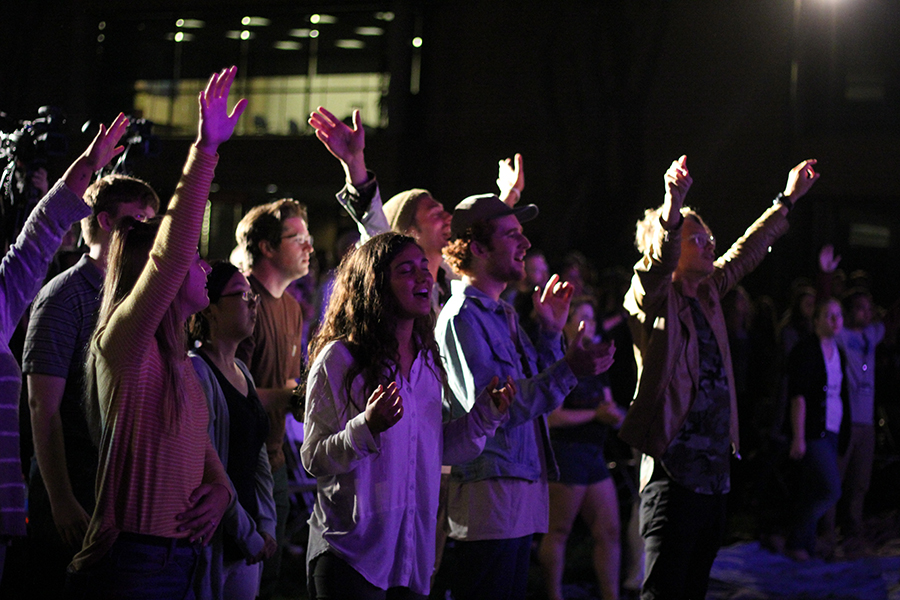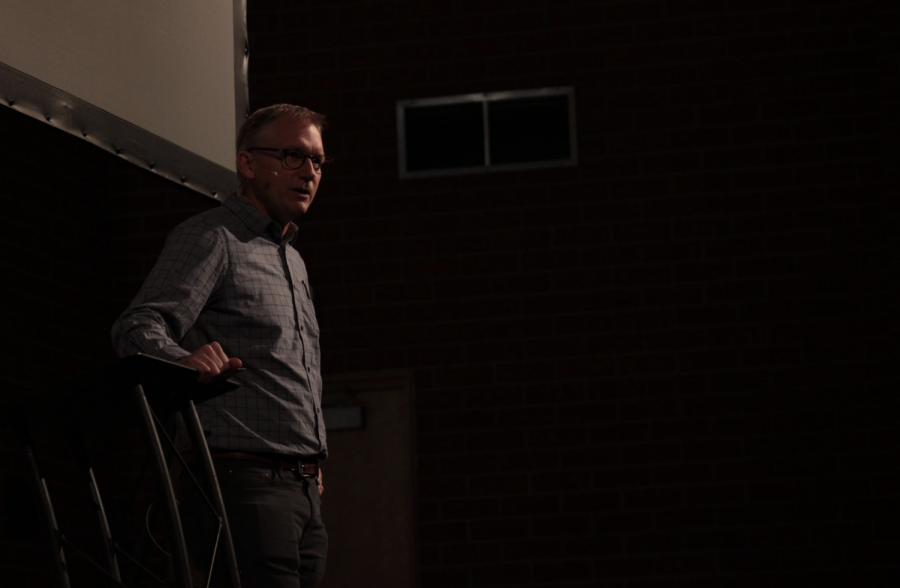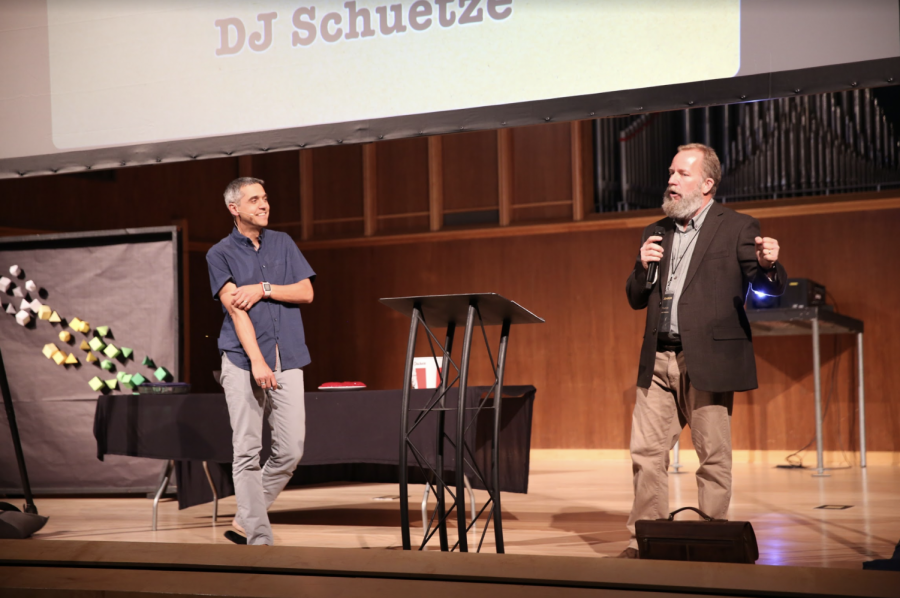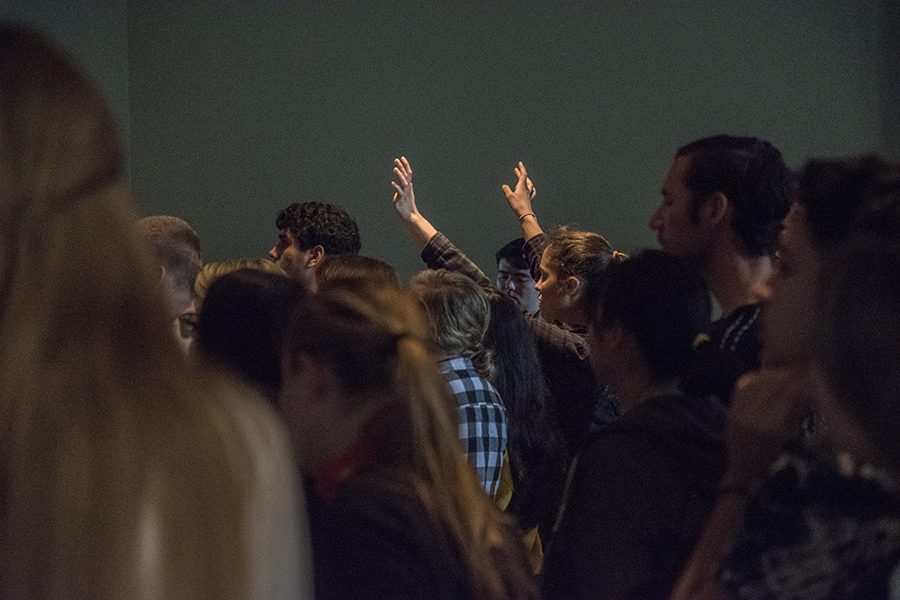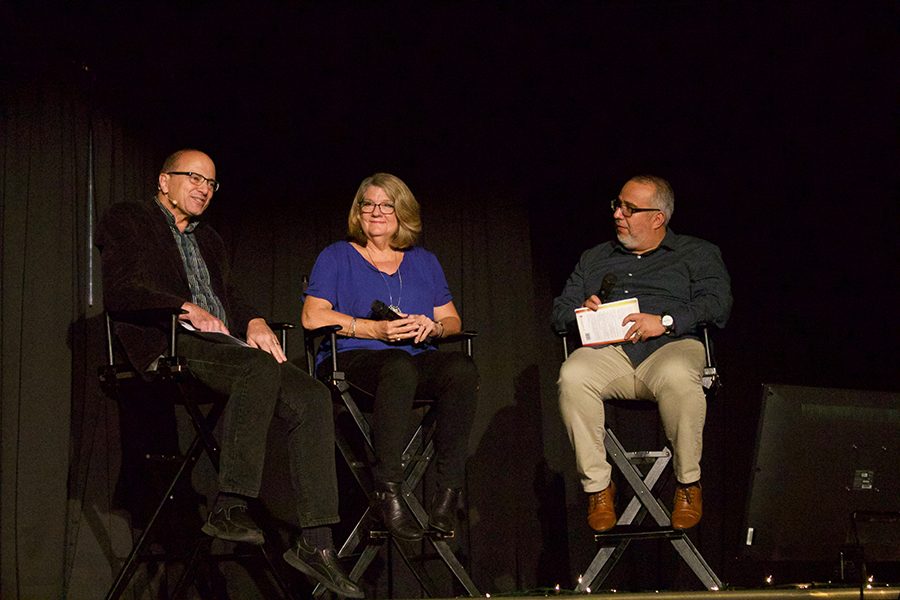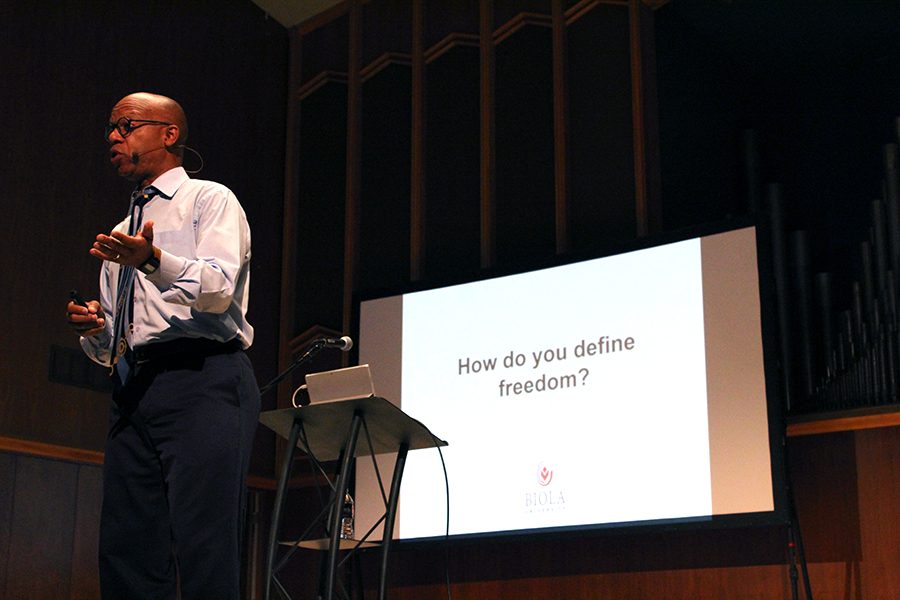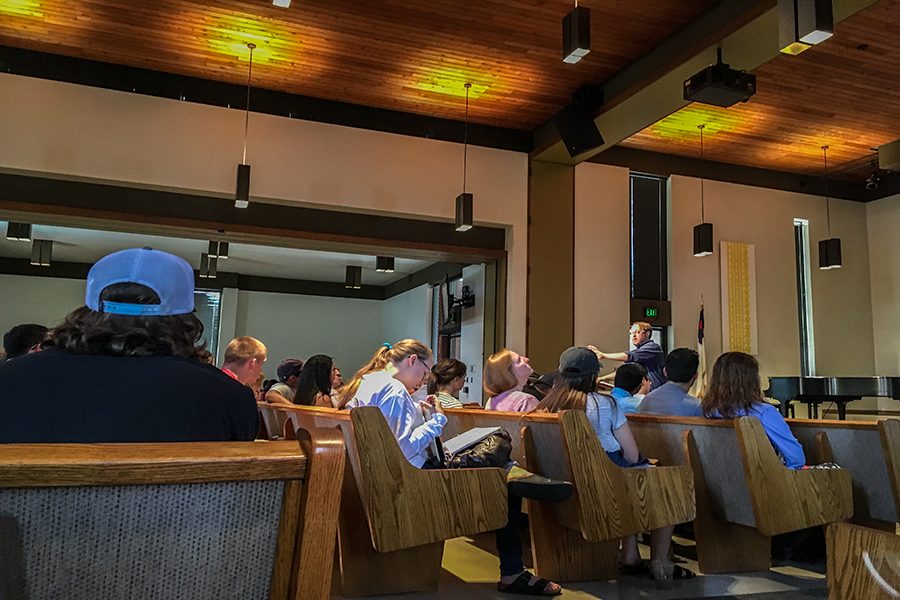“But the Lord said to him, ‘Go, for he is a chosen instrument of mine to carry my name before the Gentiles and kings and the children of Israel,”’ Acts 9:15.
What is our response when God urges us to have difficult conversations? For Ta’Tyana Leonard, it was resistance. Although she originally planned on talking about how her life as a dedicated athlete correlated to the life of a Christian, God had other plans.
During Thursday’s main session, titled “The Spirit’s Ministry of Reconciliation,” Leonard shared how she has engaged with the conversation about race since the age of seven, as she watched her father get pulled over repeatedly because of his race. She went on to stress the heaviness of these conversations and the burden placed on those who carry them can quickly become weary. That is why many of us often experience similar feelings of resistance when topics related to race, sex or other politicized topics arise.
Due to the heaviness, we have been conditioned to believe we can only care about one or two of these heavy topics. Pointing to a passage of an injustice among Hellenistic widows in Acts 6, she explained that this simply does not align with God’s intentions for his church. Just as the church in Acts willingly stepped into difficult conversations, we are similarly called to do the same. God has given us the ability to care for any injustice plaguing his kingdom.
Leonard expanded on her message by pointing to Ananias in Acts 9. Fearful for his life, Ananias obeyed God’s call to go see Saul, the man who had persecuted Christians for years prior to his conversion. From that encounter, Saul became one of the greatest evangelists in Christian history. By having faith and intentionally stepping into these conversations, we risk exposing our weaknesses. Leonard argued, however, that this allows the Holy Spirit to intercede and reform the people in our communities.
Leonard finished her time by calling the audience to action. For so long, the marginalized have lifted the load of reconciliation by themselves, resulting in much pain and soreness. We as the church are not called to simply debate whether or not the load exists or worth our energy, but rather to bend down and lift with them. In this way, we have the opportunity to faithfully rely on the Spirit, who will provide energy and strength to carry on.



